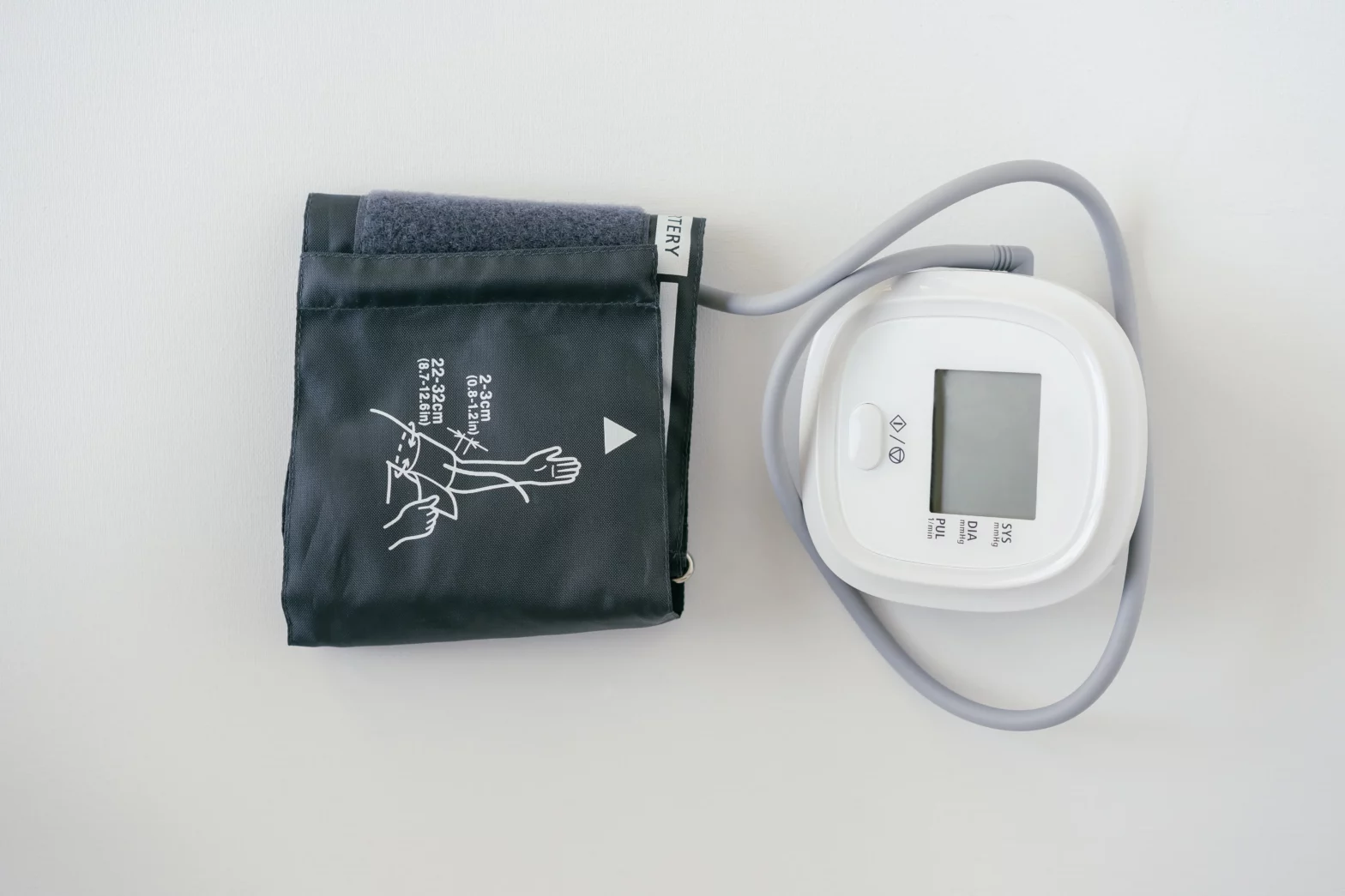In order to maintain good heart health, it is important for you to know your blood pressure measurements. You may ask, “what do blood pressure measurements mean?” Blood pressure is the force of blood pushing against blood vessel walls of our bodies. Blood pressure is written as two numbers. The top (systolic) number is the pressure when the heart beats. The bottom (diastolic) number is the pressure when the heart rests between beats. Normal blood pressure is below 120/80 mmHg.
High blood pressure usually has no signs or symptoms. That’s why it is so dangerous. But, it can be managed. Nearly half of the American population over the age of 20 has high blood pressure and don’t even know it. Not treating high blood pressure increases the risk of heart attack and stroke. Make sure you get your blood pressure checked regularly and treat it the way your doctor advises.
Nowadays, there are so many ways to monitor your blood pressure. There are manual and automatic blood pressure machines, smart watches and numerous other devices like rings, fitness trackers, and other devices. Long gone are the days, where you had to go to the doctor’s office to find out your blood pressure! Make a habit of monitoring your blood pressure regularly, tracking your readings, and sharing them with your healthcare provider.
| Blood Pressure Category | Systolic mm Hg (upper number) | Diastolic mm Hg (lower number) | |
| Normal | Less than 120 | and | Less than 80 |
| Elevated | 120-129 | and | Less than 80 |
| High Blood Pressure (Hypertension Stage 1) | 130-139 | or | 80-90 |
| High Blood Pressure (Hypertension Stage 2) | 140 or Higher | or | 90 or Higher |
| Hypertensive Crisis (Consult your doctor immediately) | Higher than 180 | and/or | Higher than 120 |
There are risk factors that increase your chances of developing high blood pressure. Some you can control, others you can’t. For the ones you can control, make a concentrated effort to keep your blood pressure in check. Risk factors that can be controlled include:
- Smoking and exposure to secondhand smoke. This includes not only cigarettes, but any nicotine product since they all damage your blood vessels, making high blood pressure more likely. If you smoke, may a commitment to stop.
- Diabetes. If you are diabetic, make sure you are eating appropriately, watching your weight, and taking your medications.
- Being obese or overweight. Eat wisely. Avoid foods high in sugar and fat. Keep your weight in check.
- High cholesterol. Take measures to eat a healthy diet, like the Mediterranean or DASH diet. If you take cholesterol medications, take them as prescribed.
- Unhealthy diet (high in sodium, low in potassium). If you are healthy, you shouldn’t eat more than a teaspoon of salt (2300 milligrams of sodium) a day, or if you have a heart condition, not more than 1,500 milligrams of sodium a day.
- Drinking too much alcohol. Women should not drink more than one drink a day, and men not more than 2 drinks a day.
- Physical inactivity. Try getting at least 30 minutes a day of exercise. This can be divided into 10 minute increments.
- Stress. If you are experiencing stressful situations in your life, find ways to reduce your stress. Try deep breathing, practicing mindfulness, meditation, praying, or exercising. If you find you are overextending yourself, learn to say “no”.
Although all of these things may seem like a lot of work, managing your blood pressure will help you avoid developing other medical conditions and help keep you healthy. Reach out to family and friends who can support you in your quest to stay healthy. Positive nurturing relationships also help reduce stress. And, ensure you are following up with your physician and following his advice. Pharmacists are also great resources who can help explain your medications, and give you tips on how to manage your condition.
References:
- American Heart Association
- https://www.webmd.com/heart/control-blood-pressure


